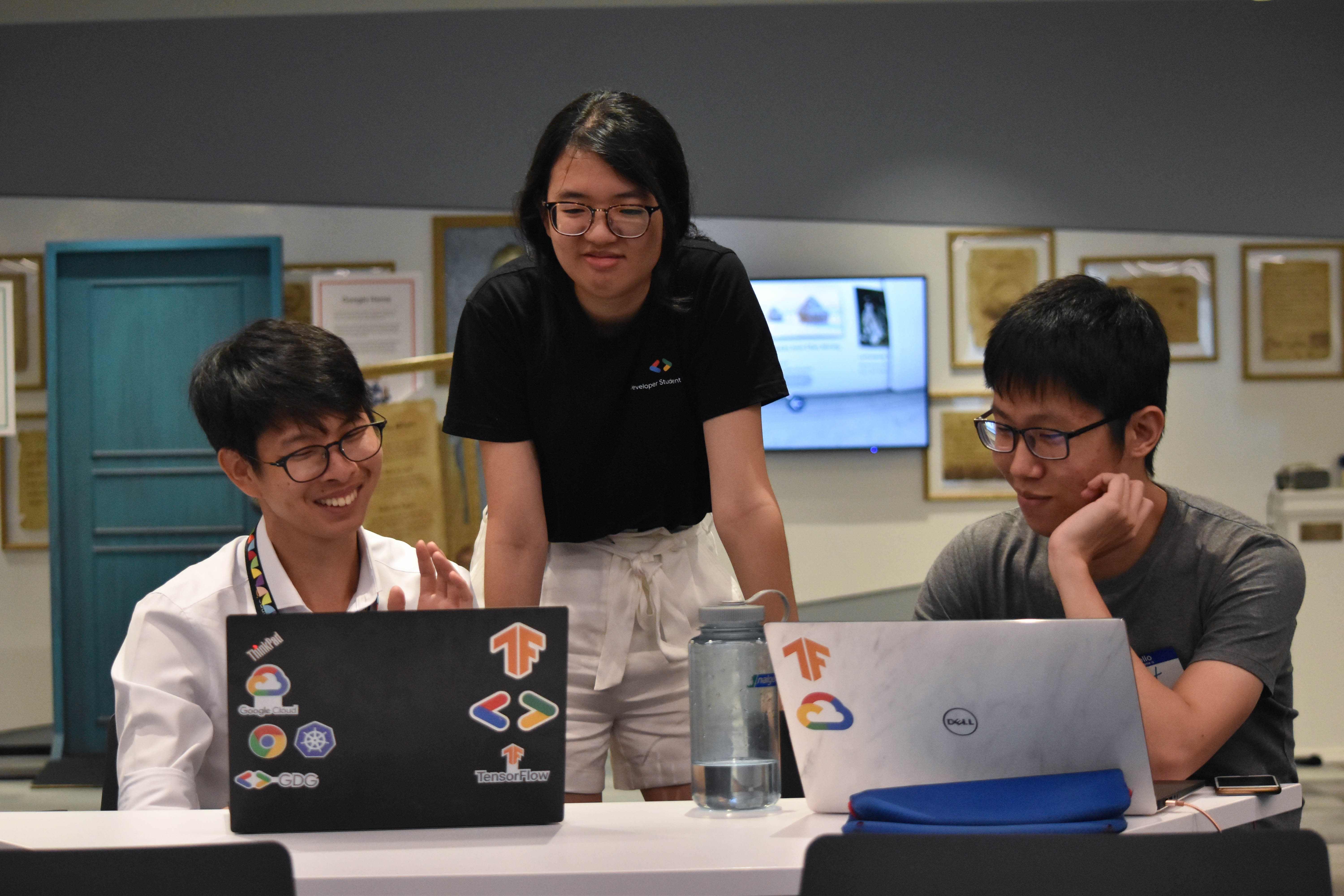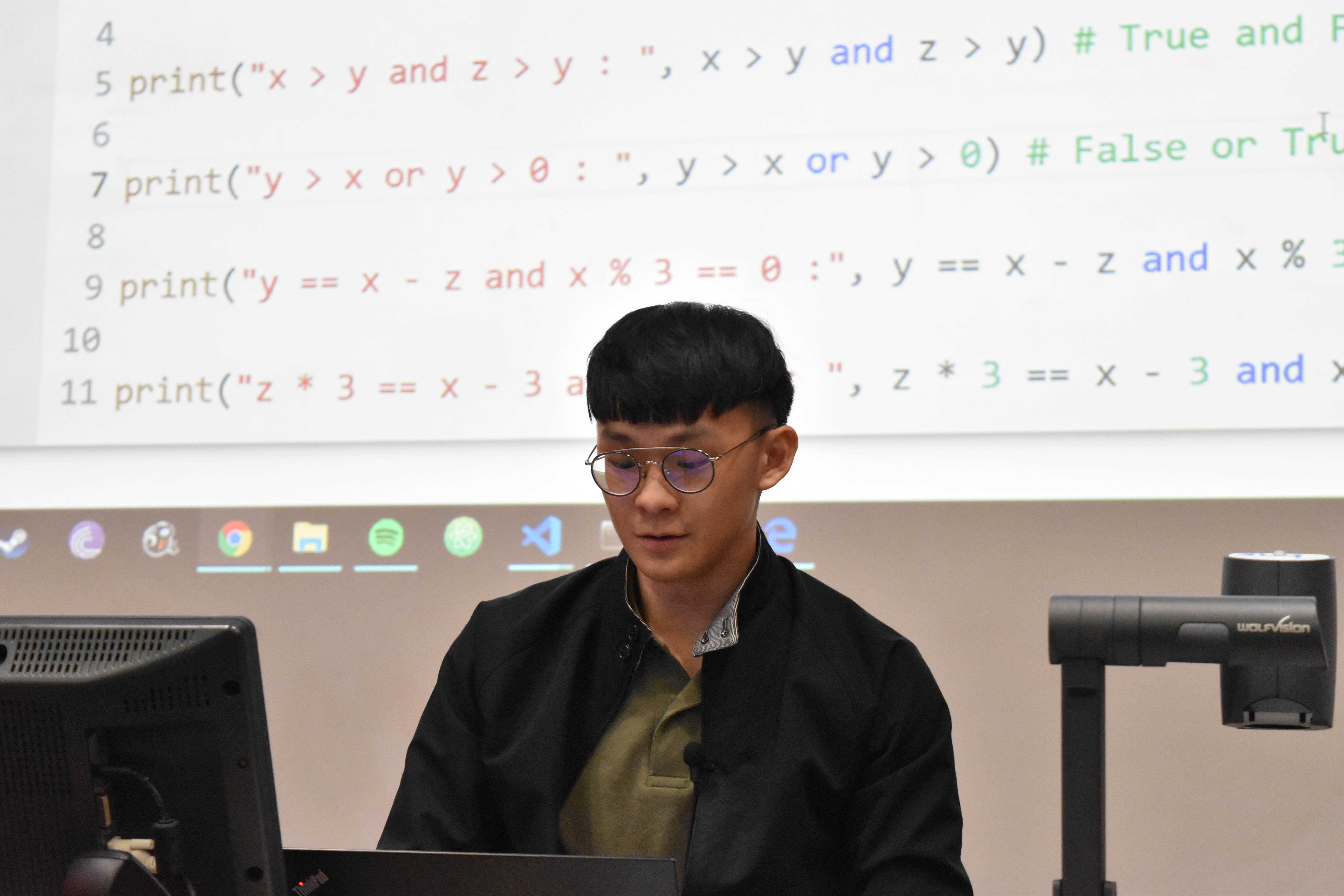We at Developer Student Club NUS are launching our very first Data Analytics Workshop Series, kicking off with an Intro to Data Analytics with Python Workshop!
Through this series, we aim to equip anyone with zero analytics or programming knowledge with the skills required to tackle the essential components of any data analytics project.

Our past events

Intro to
Data Analytics with Python
Python is our language of choice for Data Analytics. In our
first introductory workshop, we'll be getting everyone up to
speed with the fundamentals of programming in Python, as well
as to set up a proper data science environment on your
machine. From there, you'll have your bases covered to explore
the rest of the data science ecosystem.
Topics covered: Programming in Python, setting up Anaconda and Jupyter, Utilizing third-party libraries
- Date: 31 Jan 2020 (Week 3)
- Time: 6.30pm to 9.30pm
- Venue: LT33, S17, NUS

Data Collection and Web Scraping
Before any data analytics project, data needs to be collected.
Data collection can be challenging when we are interested in
different data sources. In this 2nd of 5-workshop series on
Data Analytics, DSC NUS covers the Python Reddit API Wrapper
(PRAW) for text collection. We learn to collect, save and load
data for analysis in the next workshop.
Topics covered: Reading and writing data, web scraping with BeautifulSoup and Requests, web APIs for data collection (e.g. Reddit, Twitter)
- Date: 14 Feb 2020 (Week 5)
- Time: 6.30pm to 9.30pm
- Venue: Youtube live-stream (in consideration of COVID-19)
- Pre-requisite: Basic python knowledge OR our first workshop materials

Visualization and Pre-processing
In this 3rd of 5-workshop series on Data Analytics, we learn
how to manipulate our data using Pandas, a powerful data
analysis library in Python, and learn to visualise our data in
Matplotlib, a plotting library in Python that generates
various plots for analysis. Thereafter, using our data, we
learn how to do Feature Engineering - that is, preparing our
data, in ways that are suitable and optimal for our Machine
Learning algorithms that will be covered in the next workshop.
Topics covered: Matplotlib, more on Pandas dataframe, data Pre-processing
- Date: 21 Feb 2020 (Week 6)
- Time: 6.30pm to 9.30pm
- Venue: Youtube live-stream (in consideration of COVID-19)
- Pre-requisite: Basic python knowledge OR our first workshop materials

Machine Learning
After you have done a large amount of work manipulating,
analysing and cleaning your data, it is time for your data to
do the work for you. In this 4th of 5-workshop series on Data
Analytics, we tackle the most popular Machine Learning
techniques out there and use them to create powerful models
that allows us to make predictions with all those data.
But creating your model is only the first step, how do you
know whether your model worked? That is where evaluating and
validation comes into play. Join us to learn more about
validation and see your model improve as it gets “trained”.
- Date: 13 March 2020 (Week 8)
- Time: 6.30pm to 8.30pm
- Venue: Youtube live-stream (in consideration of COVID-19)
- Pre-requisite: Basic python knowledge OR our first workshop materials
